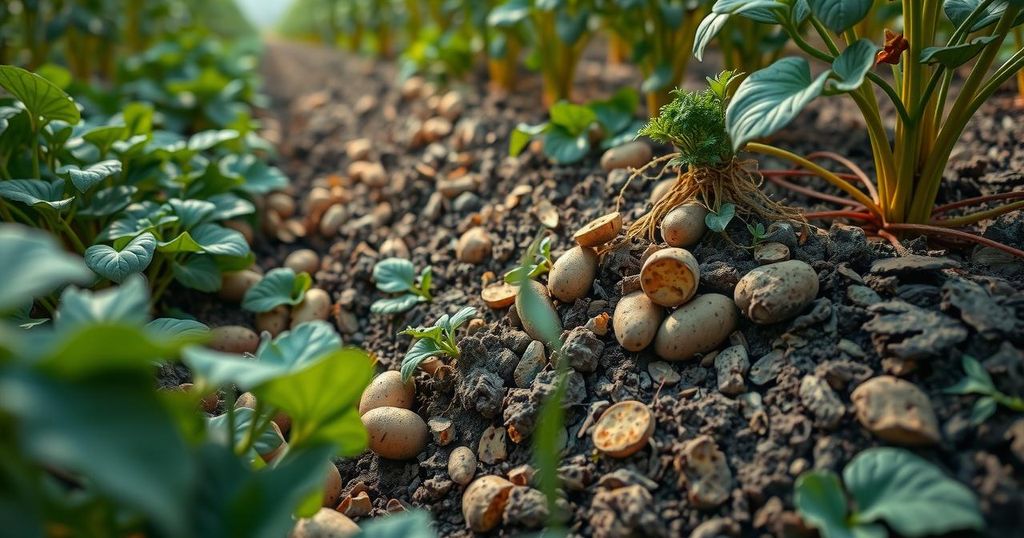Research led by Li Jieping in China reveals that rising temperatures due to climate change could reduce potato yields by over fifty percent while accelerating growth. This poses serious risks to food security, as China is the largest potato producer, accounting for over 22 percent of global output. Farmers may need to alter planting strategies to mitigate these effects and safeguard their livelihoods.
As global temperatures rise due to climate change, researchers in China are investigating the implications for potato cultivation, particularly as the country is the largest producer of potatoes worldwide. Led by molecular biologist Li Jieping, the team has created simulated higher temperature conditions to assess their impact on potato yields. This research indicates that while potato growth may accelerate, the yield could decrease by more than fifty percent, which poses significant concerns for food security given the crop’s importance in China and beyond.
In their three-year study, the researchers cultivated common potato varieties in a controlled environment with temperatures elevated by three degrees Celsius over the current averages seen in northern Hebei and Inner Mongolia, where potatoes are typically grown. The findings revealed that accelerated growth comes at the cost of diminished yield, with harvested potatoes being considerably smaller than those grown under standard conditions. With the threat of climate change forecast to lead to a worrying three-degree Celsius rise above pre-industrial levels by century’s end, Rao Jieping voiced concerns about the future of potato farming.
Farmers are urged to adapt their agricultural practices in light of these findings. Jieping suggested that they consider changing their planting seasons to early spring, instead of late spring or early summer, and to potentially cultivate in regions at higher altitudes to mitigate the effects of increased temperatures. Furthermore, farmers are increasingly seeking disease-resistant and high-yield varieties as they face challenges resulting from both warmer temperatures and increased humidity, which affects timely harvesting.
The research conducted by the International Potato Center (CIP) in collaboration with the Chinese government highlights the urgency of this issue as higher temperatures and wetter conditions threaten both crop yield and farmers’ livelihoods. If solutions are not found promptly, not only will potato farming become less economically viable, but consumers will also face rising potato prices, impacting food security across the board.
Potatoes are a vital food source globally and particularly significant in China, which contributes over 22 percent of the world’s potato production. However, climate change poses severe risks to this crop, as warmer temperatures and increased humidity can lead to lower yields and compromised quality. With projections of substantial temperature increases by the end of the century, understanding the effects of climate change on potato cultivation is crucial. Researchers in this study aim to optimize growing conditions and develop strategies for adaptation to ensure sustainable potato production and maintain food security in an era of climate uncertainty.
This research underscores the critical challenges posed by climate change to potato farming in China and highlights the pressing need for adaptive strategies to preserve yields and maintain food security. As temperatures rise, the implementation of innovative farming practices and the development of resilient potato varieties will be essential. Without proactive measures, farmers may face declining profitability and increased potato prices, ultimately endangering the food supply chain.
Original Source: www.outlookbusiness.com







